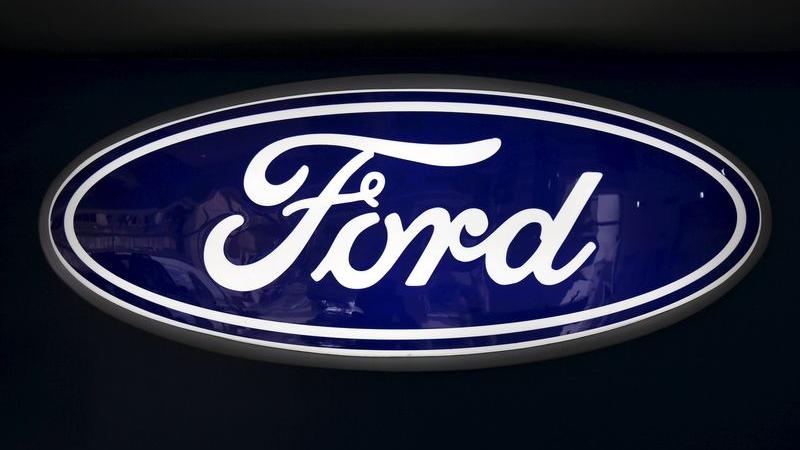Ford Entering Into The Craze Of EV Vehicle Manufacturing To Enjoy The Tax Incentives By Biden Administration.
North American manufacturers are rushing to secure battery materials supply to enhance EV manufacturing as demand for environmentally friendly vehicles rises, and tax incentives become available in the United States.

Ford bombarded investors with fresh battery-material sourcing agreements, displaying how it would strengthen the supply chain required for a major electric vehicle (EV) manufacturing increase. The announced acquisitions represent Ford’s extended bet on direct lithium extraction (DLE) technology, an emerging crop of untested filtering technologies aimed at revolutionising how the metal is produced for the EV market. Ford has stated that it will have a global capacity of 600,000 EVs by the end of 2023.

The two biggest names in the multiple firms that signed arrangements with Ford recently are Albemarle in the United States and SQM in Chile, both of which are the world’s largest lithium producers. These agreements are among 5 announced on Ford’s investor day that detail how the automaker plans to produce 2 million EVs per year by 2026 and then expand from there.
Albemarle Corp and Nemaska Lithium will deliver lithium hydroxide, a major element in the cathode of lithium-ion batteries, over five and eleven years, respectively. According to the firms, Albemarle will deliver more than 100,000 metric tonnes of lithium hydroxide for about 3 million future Ford EV batteries.
The mining is not a limitation. It’s the processing, Ford CEO Jim Farley explained. So they’re processing those raw ingredients, particularly Lithium and nickel, into a slurry that can be used to produce the cells themselves. Ford has announced direct collaborations with battery metals producers for the second time in less than a year, following a series of agreements announced in July.
Among the most recent agreements are the following:
- Albemarle will deliver over 100,000 metric tonnes of battery-grade lithium hydroxide for about 3 million Ford EV batteries beginning in 2026 and continuing until 2030.
- SQM is securing the supply of battery-grade lithium carbonate and hydroxide, which will allow Ford cars to qualify for consumer tax credits under the Inflation Reduction Act.
- Nemaska Lithium in Canada is supplying up to 13,000 tonnes of lithium hydroxide per year, with Ford becoming the business’s first client. The company is funded by the Quebec government and Livent, the world’s third-largest lithium producer.
- EnergySource Minerals and Compass Minerals are delivering lithium products they aim to produce in California and Utah beginning in 2025. EnergySource Minerals, based in Imperial Valley, California, will provide Ford with lithium hydroxide. Lithium carbonate will be supplied by Compass Minerals.

Why is Lithium important for EV vehicles?
Lithium, a fundamental component in most current EV batteries, has a higher energy density than older battery inputs, allowing batteries to be more compact with more storage capacity, which is critical for ensuring long charging distances.
Despite establishing an off-take arrangement with Liontown Resources last year, Ford looked to be underperforming competitors regarding lithium supplies, according to David Deckelbaum, a TD Cowen analyst. However, he stated that the spate of transactions announced recently placed it “well ahead” of other automakers and illustrates what will be the most likely approach that firms choose to ensure supply rather than mergers and acquisitions.
Ford is holding a two-day event this week in Dearborn, Michigan, to persuade investors of the benefits of its ambitions to boost EV manufacturing by 16 times in a few years. Farley stated that the business is “pretty much done” securing the mining capacity required to meet its 2026 output target.
Are the efforts towards EV vehicle manufacturing have some political angle?
Ford’s processing limits, according to the CEO, are partially political. The Biden administration encourages firms to rely less on China by making EV subsidies contingent on sourcing components and materials from North America and free-trade countries.
According to Farley, on-shoring processing will be the most important cost and political controller. Eighty per cent of nickel and lithium processing is done in China, and we need to localise that.
Automakers aiming to expand their electric lines have been concerned about the availability and cost of critical battery components such as Lithium, nickel, and cobalt for years. However, the challenges have become more pressing in recent months due to increased rivalry for supply agreements, huge fluctuations in raw material prices, and the Biden administration’s desire for firms to lessen their reliance on China for vital minerals.

North American manufacturers are rushing to secure battery materials supply to enhance EV manufacturing as demand for environmentally friendly vehicles rises, and tax incentives become available in the United States.
Proofread & Published By Naveenika Chauhan




